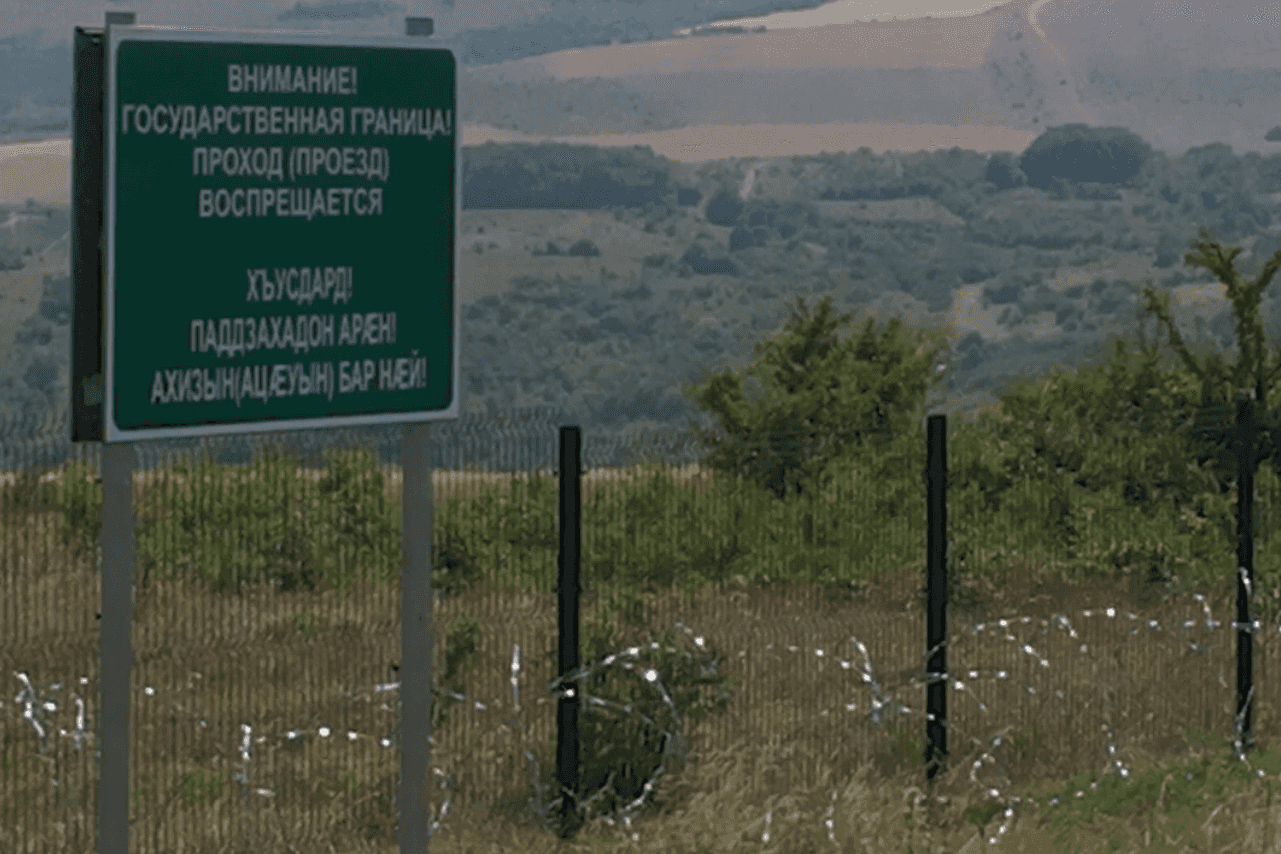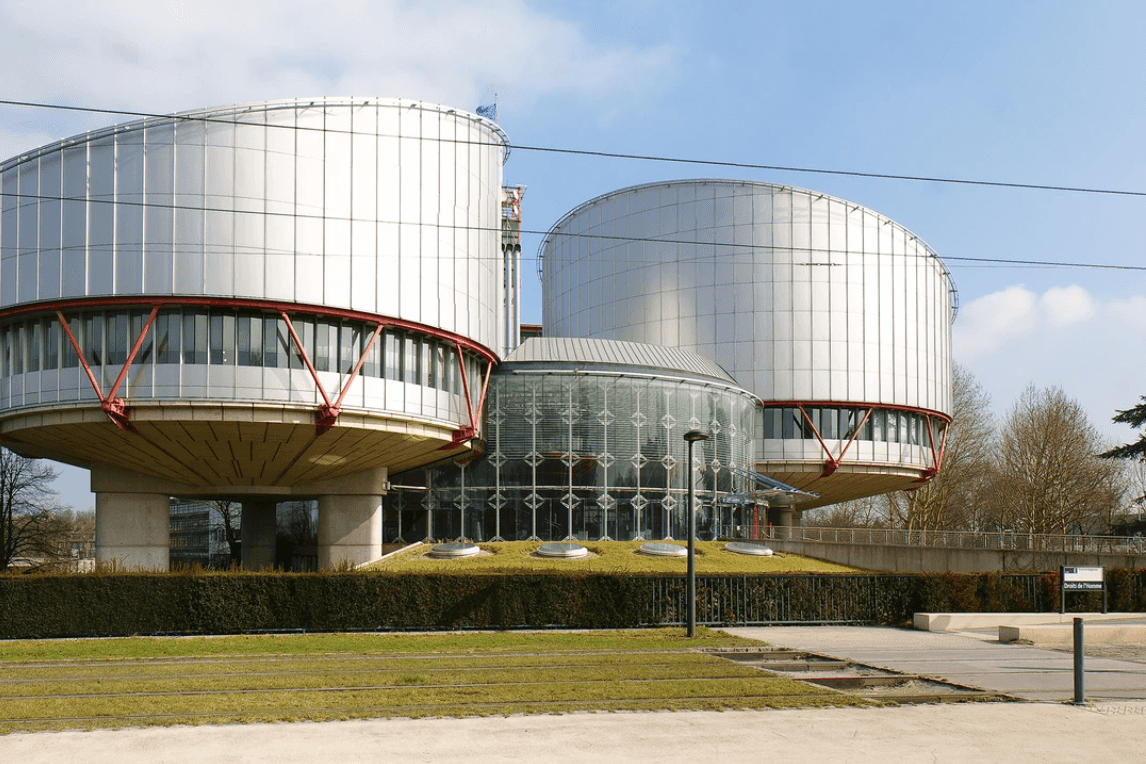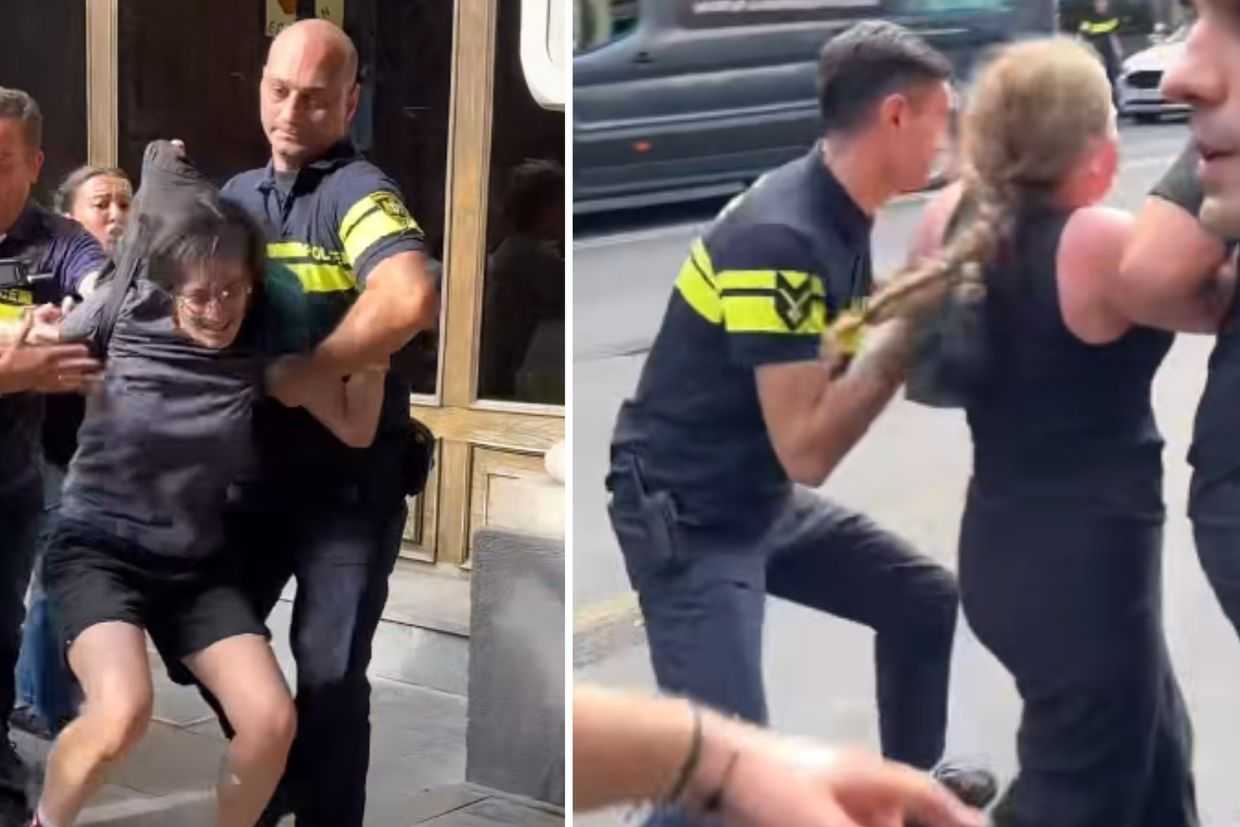![[Voice from the Georgian–South Ossetian conflict] ‘Everybody stole’](/_next/image/?url=https%3A%2F%2Foc-media.org%2Fcontent%2Fimages%2Fwordpress%2F2019%2F12%2Fchvrinisi.png&w=3840&q=90)
A A, 80, the village of Chvrinisi, Kareli Municipality.
 ‘I was working in Znauri [a village west of Tskhinvali] when the unrest began; I didn’t like that mess. Georgians and Ossetians were muttering among themselves. I couldn’t do anything, my words were not considered significant, but sometimes I told them to stop or everything would end badly for both sides.’
‘I was working in Znauri [a village west of Tskhinvali] when the unrest began; I didn’t like that mess. Georgians and Ossetians were muttering among themselves. I couldn’t do anything, my words were not considered significant, but sometimes I told them to stop or everything would end badly for both sides.’
[Read in Georgian — სტატია ქართულ ენაზე]
‘There was a judge named Kako who led his own group. When they talked about what was going on I told him: “please stop, at least you should stop, you’re a judge. Don’t do this, don’t complicate everything, don’t mess everything up, I know this won’t end well. People will suffer and be exterminated”.’
Anyway, they messed everything up: burned things down, threw people out, and now there are so many refugees and Tbilisi can barely accommodate so many people, while very few people are left here. Villages were depopulated; I was detained four times.’
‘I have been to Tskhinvali and beyond, to Java. Everything is ruined, particularly Georgian villages. Not even the ruins of houses have remained — nothing is left. I have no idea who will rebuild those villages. This is the result of the 1990s, villages were destroyed, people died. There is no one left to save us.’
‘Everybody stole’
‘I left in the 1990’s when the unrest began; I left my home hoping it would be temporary, and that people would soon make up. I closed my office, I was working in a storage unit in Znauri. Then they robbed the storage unit, destroyed it, took everything that was mine’
‘I moved [to Chvrinisi, south of the South Ossetian border]. I have been here ever since. Then the militia — [Vazha Adamia, head of the Georgian nationalist Merab Kostava Society] came here with his broken cannons. They left and carried on, we did not let them stay here.’
‘Had we let them stay, they would have soon started shooting us from the other side. They went to Kaleti [a mixed village before the conflict, bordering Chvrinisi] and stayed there.’
‘After five days the Russians came in our direction, with Russian weapons, maybe some of them were Ossetians. After hearing the sounds of Russian weapons [the Merab Kostava Society] ran away. They left their plane there. The plane and cannon were burnt, and after that they came back just to steal from people.’
‘When someone from our side went over they would steal different things. Those villages became empty. Nothing good happened. Everybody stole — both us and them. Everyone stole except for me. I didn’t want anything from them and stayed put, so they would not take anything from me. They had already taken everything I had and now I would not let anyone take anything else.’
‘Because of you all of Kaleti was burnt down’
‘One day in the 1990’s, a group from our side entered the area known as Seri Balta. There was only one family living right at the edge of the village and they burned their house down. It turned out that these were the exact people who now live in my house.
The commander came back; he was from Znauri. He was talking to his guys about how they burned the house. As soon as I found out I argued with them. “Because of you all of Kaleti was burnt down”.’
‘I immediately threw them out of my house. Then they came for the Imeretians. Half of Kaleti was populated by Imeretians, and the half by Ossetians. The houses of those Imeretians were burned entirely, because of that one house. Although, no one came to Chvrinisi, neither Ossetians, nor Russians, nor Tatars — no one.’
‘I recognised one of them — my friend’s son’
‘I was still here in August 2008, my wife was quite ill, still in a wheelchair. And neither Russians, nor Ossetians came in our direction. The Ossetians came to Atotsi [a neighbouring Georgian village] and burned one house. I saw them walking by in masks, but I recognised one of them — my friend’s son. He asked me whether I recognised him and I laughed.’
‘I, with some other older people, met them. “How can I not know you?”, I said, you are wearing a mask but I can recognise your voice, you are my friend’s son. He told me they would not harm Chvrinisi, “you have not robbed or burned anything. Now we are going to Koda”. The residents of Koda had offended them too.’
‘They recognised me and said my stuff was in the sack’
‘Thus, we survived. We had a ruined school and they burned it down, although it had already been burned. Once, when I was shepherding, I heard that the Russians had arrived. I didn’t believe it but I still came back. I had left my wife in her wheelchair on the balcony. I had to come back by noon to feed her.’
‘When I came home I found that they had already been there and stolen my property. I asked my wife where they had gone. I caught up with them; they were wearing masks. They were Ossetians, I realised that quickly. They recognised me and said my stuff was in the sack, and I could take it. They had taken my chainsaw, chainsaws were hard to come by in those days. They had taken my drill as well, and everything I kept in the shed. I took everything back, then I realised who he was, but what could I do?’
‘Nothing like that happened again. Russians did not enter our village; and those Ossetians left us alone, no one came back and this is how we have lived until now. Unless some unrest starts again.’
‘They would detain me in the evening and release me in the morning’
‘Nowadays, we wouldn’t go to their side without a particular purpose. We know they will detain us. Sometimes cattle cross over and don’t come back. No one except me goes there. If we lose the cattle, what else can we do? I have to go.’
‘There was a one person, Ali. Ali was a Lezghin from Makhachkala. He caught me several times with cattle then let me go — at least 5 times. They detained me and then let me go. Previously, when they detained me, I paid them ₽1,500 ($26) and they would let me go.’
‘They would detain me in the evening and release me in the morning. They detained a local girl once. People came to me and asked me help get her released. I went to the firgrove, near the banner. She was standing there crying. She was afraid.’
‘It’s hard when you don’t know their laws. Then Ali came and told me to go; I refused unless they let the girl go. They refused and said that they had already reported [her detention]. I told them to detain me as well.’
‘They did not free her, so I went with them. When we arrived at the detention facility I told the head of the military division that I needed him to lend me ₽4,000 ($70), which I would give back the next day. I could see that he did not have the money; or maybe he had it but he could not trust me. Then I told him to call my friend Seva from Kaleti who would bring the money.’
‘He called him! He was a very good man. He called him and he brought me ₽4,000. We paid in the morning and they let us go.’
‘If it was possible, I would go to Tskhinvali’
‘I have a relative, after my wife passed away I wanted to visit them, but I can’t. I have to go via Larsi [Georgia’s border crossing with Russia], which is very time consuming and I have no one to leave at home. I need a [Russian] visa, money, and time. If it was possible, I would go to Tskhinvali, stay overnight and come back the next day.’‘We still live the same way in Chvrinisi, cultivate what needs to be cultivated, take care of our families, take care of the cattle…’
‘When a cow crosses to their side, I don’t go after it, sometimes they send them back. Sometimes their cattle come to our village. Just yesterday their cattle followed ours here. Now I won’t go beyond the sign, not again, I cannot fall into their hands again. Sometimes I stay here and watch our cattle return and five of their cows follow. Then they come, follow them to our village and I send them back. This is what we do, we send their cattle back. They do the same.’
‘I had to attend my friend’s funeral’
‘I have been detained and taken to isolation four times. I went twice to get my cow and the Russians caught me. Another time, my Ossetian friend had passed away and we went to express our condolences. On the second day, I went to attend the funeral — he was my friend after all. I took some money to make a donation and pay the fine if they caught me. And they did catch me in the firgrove.’
‘I told them I was going to my friend’s funeral. They did not believe me at first, then they did, but they still detained me. They fined me and wanted to send me home, but I didn’t want to go home, I had to attend my friend’s funeral. They said it was impossible.’
‘Their president Tibilov was attending the funeral, and my friend’s sons told him that their father’s older friend had been detained while trying to attend. He made a call and arranged everything. They drove me to the funeral in his car. I attended and stayed for another half hour for the repast. Then they drove me back. That’s it, I won’t go there again, I won’t let them catch me again, enough is enough.’
‘There is no other way’
‘Our future depends on the government. Reconciliation is up to them. There were times in the past, when the country was in trouble, and someone would appear. I had hopes for Ivanishvili, but nothing works out. Maybe a truthful person will appear who will reunite us, let us go there, let them come here. That’s all that is needed, life will go on the way it did before.’
‘You are asking whether I want to reunite. Of course I do. Is reconciliation possible? Of course it is. There are people on their side, at least my acquaintance’s children, who are quite eager. They want this as well, the older people. Young people do not want reconciliation, and it’s the same on our side but I think they’ll make up in the end. Otherwise, what are they going to do with our territories? All this, until Java and beyond, is ours, it’s Georgia. What are they going to do with this land? Our people and governments must make up — there is no other way.
[Read from the other side of the conflict: E J, 62, the village of Dzau, teacher — ‘As long as we have Putin…’]
The article is an edited version of a story recorded by Goga Aptsiauri for George Mason University, with funding from USAID, and the UK Conflict, Stability, and Security Fund. All place names and terminology used are the words of the authors alone, and may not necessarily reflect the views of OC Media or George Mason University.








